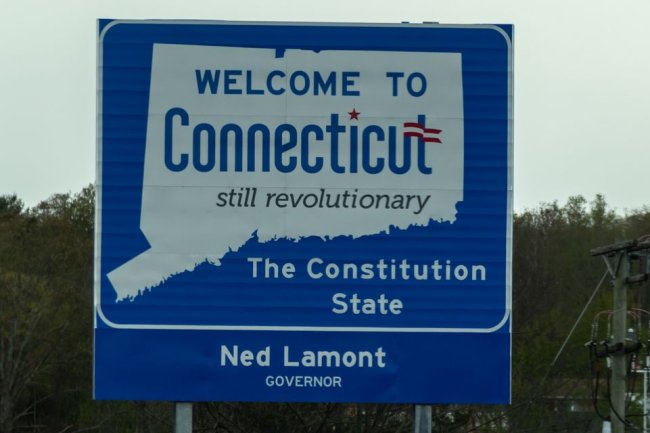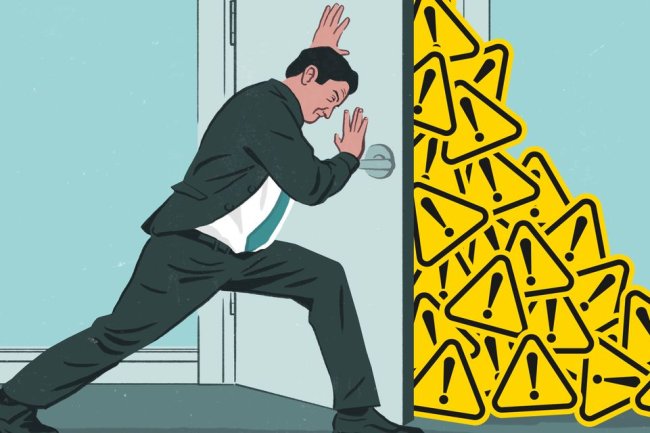Israel’s Supreme Court Could Strike Down a Bill Aimed at Limiting Its Power. But Will It?
Public pressure weighs on country’s high court to overturn law that curbs its powers Protesters blocked a highway in Tel Aviv on Tuesday following the passage of a bill that limits the powers of Israel’s Supreme Court. Photo: Corinna Kern/Reuters By Shayndi Raice July 26, 2023 12:01 am ET TEL AVIV—Israelis opposing Prime Minister Benjamin Netanyahu’s judicial overhaul are taking their fight from the streets to the country’s top court, asking the justices to strike down a divisive law enacted this week. The question electrifying the country: Will they? Nongovernmental organizations and others have filed petitions asking Israel’s highest court to overturn the law, which is akin to a constitutional amendment that does away with the court’s power to strike down government


Protesters blocked a highway in Tel Aviv on Tuesday following the passage of a bill that limits the powers of Israel’s Supreme Court.
Photo: Corinna Kern/Reuters
TEL AVIV—Israelis opposing Prime Minister Benjamin Netanyahu’s judicial overhaul are taking their fight from the streets to the country’s top court, asking the justices to strike down a divisive law enacted this week. The question electrifying the country: Will they?
Nongovernmental organizations and others have filed petitions asking Israel’s highest court to overturn the law, which is akin to a constitutional amendment that does away with the court’s power to strike down government decisions it determines are extremely unreasonable. Rejecting such a quasi-constitutional law is something the Supreme Court has never done, but is now under public pressure to do.
“It will be a crisis if the court actually takes up these cases and strikes down the legislation,” said Yuval Shany, a law professor at the Hebrew University of Jerusalem. Such a scenario would pit the government against the court and could lead to a full-blown constitutional crisis if the government were to ignore the court ruling.
Hundreds of thousands of Israelis have protested for more than six months against a plan by Netanyahu’s coalition to make sweeping changes to the judicial system. Unable to stop the legislation through protests, strikes and threats by military reservists to refuse to serve, opponents are now hoping the top court will step in.
Israel’s National Security Minister Itamar Ben-Gvir, a leader of the country’s far right, said that if the court strikes down the law, it would be “an attempted coup.”
It is unclear when the court will respond to the petitions. The next step will be a preliminary hearing in front of a justice, and the court could then decide to take the case to an extended bench of justices to make a final determination. Scholars said they believe the court won’t dismiss the case out of hand.
Israel’s doctors went on strike on Tuesday and authorities forcibly removed protesters from roadways during a night of unrest over a judicial overhaul carried out by Prime Minister Benjamin Netanyahu’s government. Photo: Amir Levy/Getty Images
The bill, passed Monday by Israel’s parliament, the Knesset, was the first in a broader package of legislation aimed at limiting the court’s power and giving more control to lawmakers. Netanyahu’s coalition says that the court is controlled by activist, liberal justices and that the legislation seeks to restore a proper balance of power. Opponents charge that the legislation would undermine the court’s role as a check on executive and legislative power and would erode Israel’s liberal democracy.
The law passed Monday is an amendment to one of Israel’s basic laws, which were passed piecemeal over the years and are the closest thing Israel has to a constitution. While the Israeli Supreme Court has never struck down a basic law, it has suggested it has the power to do so.
Legal scholars say petitioners would have to prove several things in order for the court to strike down the law. Opponents would have to prove that the law undermines the core values of Israel as a Jewish and democratic state. They could also try to prove that there were flaws in the legislative process.
The Civil Democratic Movement of Israel and Darkenu, two nongovernmental organizations that filed petitions with the court, said the law constitutes “a severe and permanent change to the essence of Israeli democracy, which will dismantle the system of checks and balances necessary for a democratic regime.”

Prime Minister Benjamin Netanyahu attended a session of the Knesset, Israel’s parliament, in Jerusalem on Monday.
Photo: Maya Alleruzzo/Associated Press
Yoav Dotan, a law professor at the Hebrew University of Jerusalem, said that, on its face, the law appeared to be something the Knesset is allowed to enact.
“If you deal with it from a purely legal doctrinal perspective, there is no clear-cut constitutional ground to strike down this piece of legislation,” Dotan said.
But Dotan and other scholars said the court could consider the context that the bill was the first in a broader judicial overhaul that seeks to undermine democracy by eliminating a robust system of checks and balances. Opponents of the judicial overhaul allege that the purpose of the plan is to limit the court’s ability to serve as a check on the executive and legislative branches, which in Israel are very closely aligned because of the nature of parliamentary politics.
“The court should look at the bigger picture because nowadays democracies do not die in a single law that says we are no longer a democracy,” said Yaniv Roznai, a law professor at Reichman University in the Israeli city of Herzliya. “Nowadays democracies die in an incremental process, step by step.”
Many legal scholars said the court is more likely to blunt the law’s impact without taking the drastic step of striking it down.

Protesters demonstrated against the government’s judicial overhaul in Jerusalem on Monday.
Photo: Ronen Zvulun/Reuters
For example, the court could simply return the bill to the Knesset, saying it requires further debate and another vote.
The justices can also use their interpretive powers to limit the law’s scope. The court took that approach in interpreting a 2018 basic law that defined Israel as the “national home of the Jewish people,” which critics said discriminates against Israel’s Arab citizens. The courts have said the law applies as long as it doesn’t contradict other basic laws that established human rights.
The bill passed Monday says the court specifically can’t strike down a government decision because it is “unreasonable in the extreme.” Legal scholars say the court could decide to apply a similar standard with different terminology, such as arbitrary and capricious, which is used in the U.S., or proportionality, which is used in Europe.
SHARE YOUR THOUGHTS
How should Israel’s Supreme Court respond to the new law that limits its powers? Join the conversation below.
“The court is not going to strike down the law,” said Dotan. “They can fairly easily bypass most of the provisions of this legislation by interpretation.”
Even if the court does strike down the law, Roznai said he has faith that the government would abide by the court’s decision and Israel would avert a true constitutional crisis.
“I cannot imagine the Israeli government disobeying such a ruling,” he said.
Write to Shayndi Raice at [email protected]
What's Your Reaction?













